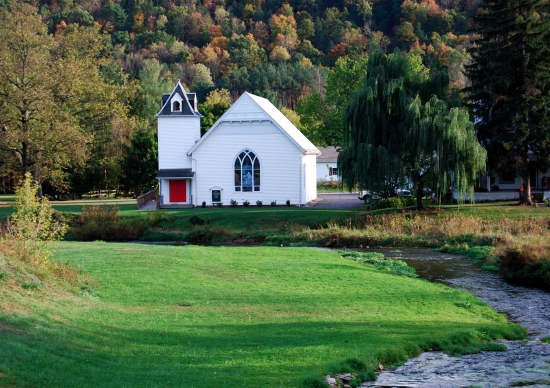I’ve been to a lot of different churches in my life. From a bird’s-eye view, many appeared to be quite healthy, flourishing with an abundance of fruit-bearing, Christ-loving disciples. Some of the other churches…well…it might be best if they just showed up next Sunday and voted for a do-over.
Maybe you’ve visited a few churches like that as well? Which church is doing church right?
I’ve been to mega-churches with thousands of members, new church-plants where having twenty-five people show up was something to be thankful for, churches with audio sound systems that cost more than a Mercedes, and churches that met in school classrooms with no microphones at all. I visited one church where the usher was a college student wearing a blue and gold Superman t-shirt and I’ve visited other churches where every usher had silver hair and wore a pressed suit and tie.
There are churches with soft padded pews and churches with hard metal chairs; churches with ornately-carved, wooden pulpits and churches with only music stands; home churches that meet in someone’s living room and churches with multiple super-sanctuaries; churches with a warm, inviting atmosphere and churches that were so cold and unfriendly even an Eskimo would’ve gotten the chills. Some churches demand that only hymns be sung while others wouldn’t know what a hymnal was if you stuck one under their nose. The fact of the matter is that there are thousands of churches to choose from and they’re each filled with interesting people from all walks of life.
So the question must be asked: Which church is doing “church” right?
Chapters two and three in the book of Revelation provide us with seven letters authored by Christ Himself—penned at the hand of the apostle John—and delivered to seven real churches in seven different cities. Those seven churches, essentially, are representative of all Christian churches everywhere in the world today. What strikes me as odd, however, is that of those seven churches Jesus told five of them to repent of their sin and wickedness or something dreadful was going to happen. And soon. He even threatened to permanently close down one of them forever (the church in Ephesus; c.f. Revelation 2:1-7).
Five out of seven churches. That’s not too good.
Of the two in which Jesus had only good things to say, one was a church that endured severe tribulation, poverty, and religious persecution (the church in Smyrna; c.f. Revelation 2:8-11). The other church was one that Jesus said kept His word, did not deny His name, and kept the word of His perseverance (the church in Philadelphia; c.f. Revelation 3:7-13). In other words, Jesus commended only the churches filled with people who were radically devoted to Him—no matter what it cost them in the end. In the midst of life’s challenges and thorny persecutions, what impressed the incarnate God was that some churches remained passionate in their worship of Him, even when doing so was inconvenient.
It’s interesting that the Lord’s commendations had nothing to do with their church’s stylistic-approach to music, what sort of facility they fellowshipped in, which translation of the Bible they read from, or even the multi-faceted demographics of the worshippers who showed up on Sunday morning. Nor was Christ concerned about whether or not the pastor wore a suit and tie when he preached or just faded blue jeans and sneakers! What concerned Jesus was what His people were devoted to and not so much about the external trappings of religion.
I think there is a lot to be learned by that.
If Jesus were to write a letter to your church today, what do you think He would say? Do you think He might demand that some of the churchgoers in your congregation repent and/or renew their passionate devotion of Him? Do you think Jesus would have anything to say to you personally? Do you think He might threaten to permanently close the doors of your church forever?
Five out of seven churches. Again, that’s not too good.


